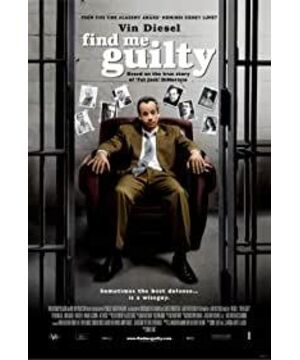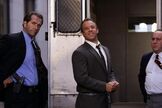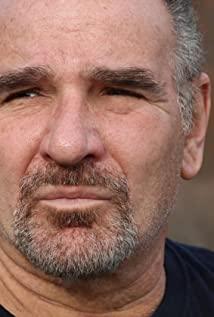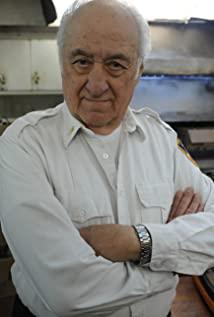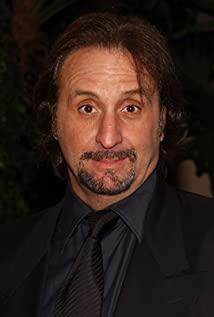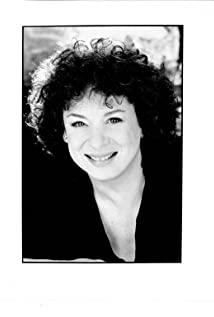If all we need is another trial, then please don't rip off the power of the movie.
As an opening remark, I must point out the "mistake" of the film's director, Sidney Lumet. The quotation marks were put in because, in his view, it might just be an adventure. He once directed the acclaimed classic courtroom film "Twelve Angry Men," in which he could make the jury's acquittal for a fictitious murder question, evoking the audience's imagination. And when he wanted to use the same method to incorporate a gang case that was widely heard in the United States in the 80th century into his own story, the director's power in his hands was bound to be challenged by the intricate forces in reality, and he was overwhelmed.
However, other than that, forget the statement at the beginning of the film and enter the film in a form of pure thought. I would say that more than half a century has passed, and Lument is still young. Then, in order to better appreciate the extraordinaryness of this film, I advise you to "pretend to be deaf and dumb" for the real case for the time being.
The film tells the story of a criminal case in country A. The defendants are 20 Italian-Americans who allegedly controlled a huge local crime syndicate. The court will review 76 charges brought by prosecutors. If the defendant is convicted, it will contribute a batch of life sentence "clients" to the prison.
The prosecution was confident in winning the case, and a team of prosecutors led by a state prosecutor known as "Dougu seeks defeat" submitted tons of physical evidence and hundreds of witnesses to the court, which tortured all the participants in the lawsuit. more than 600 days.
Prosecutor Kearney's trump card is a tainted witness, who is actually a defendant that the prosecution "bought" at a high price with their power. Their testimony is very valuable to the case because of their direct involvement in the crime. Prosecutors closed the deal with the defendants before taking them to court. How much power do judges have in criminal proceedings? How powerful is the jury? It is up to the prosecutor to decide who to send to court and what charges to bring to court. In the game of judicial adjudication, this is a bargaining chip in the hands of the executive power. And please rest assured, all the procedures are legal, and the only thing owed is the morality of the rivers and lakes, which is worthless in the eyes of the prosecution.
When Kierney tries to "buy" testimony from syndicate leader Jack, he gets a hot potato. Jack is a key point in the case. He was originally a member of the defendant's Ruches family, but "transferred" to another family midway. The reason for this shift is unclear, but it sends a message to Kearney that Jack is no longer a "virgin" when it comes to mutiny.
Gambling, extortion, drug trafficking, Jack has no shortage of crimes, and half of his life is spent in prison. "My judicial experience seems to be too much," he quipped when the judge asked Jack if he had enough judicial experience to represent himself. In fact, he did not know anything about the law, nor did he care about trials. His carelessness also lies in the poor choice of lawyers: in a drug trafficking case, he spent $250,000 in legal fees, but "bought" himself a 30-year prison sentence.
These 30 years are exactly Kearney's bargaining chip. He invited Jack to the office, entertained him with food and wine, and offered a commutation of his sentence when appropriate, in order to obtain another "betrayal" by Jack. However, he was a bit sullen. This person who has never done anything good in his life can stand on the rivers and lakes by his loyalty. Thinking about it, someone tried to buy it.
"Jack never betrays friends. I have been instilled in me since I was a child." Jack, who never forgets to play tricks, showed his solemnity only when he said this line.
Does Jack have any profound knowledge of loyalty? He was born in a marginalized community, and the mainstream society's discrimination and oppression of subcultural groups was the nourishment for his growth. "If it walks like a duck, looks like a duck, and quacks like a duck, it's probably a duck," a federal agent who testified in court flagrantly humiliated his identity as Italian. Loyalty is not a luxury in the academy, but a tool for some people living in a specific environment, and it is all their spiritual support. Laws that override specific communities require trials to shatter this "sinful alliance." But what can the law do for people living in fragmentation? When Jack was abused in prison and asked the judge for help, all he got was "we have no right to deal with this".
All the drama of this film comes from this, law and loyalty, the justice of two kinds of existence, confrontation in court. Only in this context, Jack, who is full of five poisons, dramatically becomes a spokesperson for meaning and value, and gains the dignity of fighting as a fighter.
And it is in this place that Mr. Lu's keenness is. He has put this incomparably important responsibility, this job of preserving goodwill for human nature, on a demon. In this way, Jack's color as a criminal is completely washed away, and a true defender who speaks for human life rather than self-interest is created. This protracted trial also shifted from a gang case to an interrogation about life and people's hearts. If you have read the Chinese classics, you will exclaim: This is the Spring and Autumn Brushwork! Demons also have a kind side, not only that, but only the little good light on the demons is the most valuable.
It is said that most of the lines in this film come from court records at the time, so we can believe that Jack is just the protagonist in the story. Or he is just an idol, a symbol, to preserve the symbolic value. And the one who is really chatting about it and speaking out is destined to be a supporting role who hides and recites the narration.
Based on this understanding, let's take a look at the golden supporting role in this film, the one who really "spoke" his thoughts. He is the defense counsel Ben Crantis.
Mr. Lu has been suppressing the role of this calm and talented lawyer in the film, so as not to let him steal the lead role. However, his importance will never be overshadowed by his silence. Listen to his closing speech worthy of entry into a legal dictionary:
"Ladies and gentlemen, the prosecution has gone to great lengths to testify that my client and his friends knew the pile of low-quality witnesses they provided. They want you to believe that my client has been involved in criminal activity his entire life. You look at the life of Carlo Mascarpone (whose defense is Clantis and the general counsel of the bar) from another perspective, and I'm sure the other defendants' lives too: he had a wife and kids, he went to the priest Confession, he went to the doctor to see a doctor, he asked someone to help him refuel and repair his car. In other words, the lives of these hundreds of people who come into contact with him every day and every week are no different from those here. And the government presents You are given these eyewitnesses, the whistleblowers. What kind of lives did they lead? They lost the ability to judge right from wrong. These high-priced whistleblowers may have different reasons for joining the government, but they all have One thing in common: they are all criminals! (shaking his head in disappointment, silence for a few seconds) The government doesn't like these defendants, the community they live in, the way they speak, their customs and culture. But we It is a country ruled by law, not man. What the prosecution should do, and what the jury should do, is to discover the truth, but somehow they failed in this case. The accusers became the persecutors, in order to win the case Unscrupulous? (Sadly speechless)"
"The accuser has become a persecutor", these are the most eloquent words in this film, which so freely and vividly dissect the shamelessness of the prosecution.
The jury returned a verdict of not guilty, and the audience could gnash their teeth at them, blaming the idiots for forgetting the suffering of victims of crime. And it is undeniable that the jury supported another kind of justice, one that did not comfort the dead, but the justice that supported the living, and stripped away those legitimate shamelessness.
View more about Find Me Guilty reviews


